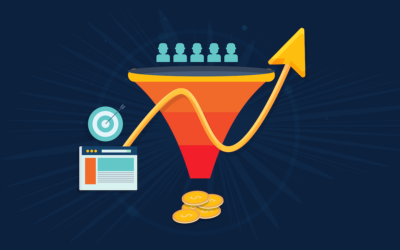Sales efficiency is the ability to close deals quickly and effectively. While sales effectiveness measures your sales team output, sales efficiency measures the speed of your sales operations. It’s a metric that shows how well your organization is running.
Sales training plays a pivotal role in helping sales teams work efficiently. By following the recommendations below, sales leaders can equip their sales team with training that fosters efficiency, productivity, and sustainable success.
Why Sales Training Is Critical to Sales Efficiency
Providing effective sales coaching and training is crucial to accelerating the sales cycle. Sales training plays an important role in improving sales efficiency by making sure sellers are fully prepared, proactive, and responsive.
When sales professionals are well trained, they have the “muscle memory” to keep deals moving through the pipeline at a steady pace. Here are some of the other ways training boosts sales efficiency.
Enhanced Skills
Training gives team members the opportunity to practice sales skills and techniques to qualify leads, handle objections, and close deals so they become second nature.
Standardized Best Practices
Training aligns your team on proven methodologies and processes and gives them a common language so they can work efficiently.
Improved Product Knowledge
Training ensures sellers are very familiar with your solutions and can articulate product benefits and address customer needs from memory.
Upskilled for Market Changes
Training keeps your team up to date on new skills so they can be proactive in the face of shifts in the market, industry trends, and evolving customer preferences.
Reduced Onboarding Time
Training accelerates the ramp-up period for new hires to become productive team members.
Higher Confidence
Training empowers sales professionals to approach prospects without hesitation and navigate complex sales situations confidently.
How to Improve Sales Efficiency
Sales training is one way to improve sales efficiency. Sales leaders should also consider how sales training aligns with the broader strategy. You want to make sure that training is contributing to a well-run organization by sticking to the following recommendations.
Establish Clear Sales Process
Develop consistent, repeatable process and sales methodologies for prospecting, qualifying, and closing deals.
Define Ideal Customer Profiles
Focus efforts on qualifying prospects most likely to convert—reducing time spent on unqualified leads.
Optimize Your Sales Funnel
Regularly analyze and refine each stage of the sales process to identify and address bottlenecks.
Streamline Processes
Automate repetitive tasks and simplify workflows to allow sales professionals to focus more on selling.
Leverage Technology
Implement customer relationship management (CRM) systems and sales intelligence tools to manage leads and track interactions effectively.
Set Realistic Goals and KPIs
Use data-driven metrics to measure performance and identify areas for improvement.
How to Build an Efficient Sales Team
An efficient sales team demonstrates several common characteristics that set them apart. They follow best practices to keep highly qualified prospects moving through the sales process.
Imagine a company that produces industrial machinery for factories. This manufacturing sales team would share some important qualities and behaviors that help it perform efficiently.
How many of these best practices does your team follow?
- Strong qualification process: Focusing efforts on prospects most likely to convert.
- Proactive prospecting: Consistently identifying and reaching out to high-quality leads.
- Rapid follow-up: Responding quickly to inquiries and moving opportunities forward.
- Effective time management: Prioritizing activities that directly contribute to closing deals.
- Continuous learning: Actively seeking to improve skills and stay updated on industry trends.
- Effective use of technology: Leveraging CRM and sales tools to streamline processes.
- Adaptability: Quickly adjusting tactics based on customer feedback and market changes.
- Strategic account management: Developing and executing tailored strategies for key accounts.
- Collaborative approach: Working seamlessly with marketing, product, and customer success teams.
Efficient Sales Teams Outperform Competitors
Efficient sales teams simply perform better than inefficient ones. They achieve specific outcomes that set them apart from lower-performing teams and from their competition.
Is your team able to achieve these performance goals?
- High win rates: Consistently closing a significant percentage of opportunities.
- Short sales cycles: Moving from initial contact to closed deal quickly.
- Large average deal sizes: Effectively upselling and cross-selling to maximize deal value.
- High customer satisfaction: Positive feedback and referrals from clients.
- Accurate sales forecasts: Reliable pipeline management and revenue predictions.
- Consistent quota attainment: Regular achievement of individual and team targets.
- Low customer acquisition costs: Efficiently converting leads without excessive resource use.
- High productivity sales metrics: Impressive results in areas like calls made, meetings set, and proposals sent.
- Strong customer retention: High renewal rates and expansion within existing accounts.
- Minimal discounting: Ability to maintain pricing integrity and communicate value effectively.
- Rapid ramp-up of new hires: New team members becoming productive quickly.
- High team morale and low turnover: A positive, motivated sales culture with strong retention.
Remember our manufacturing sales organization example? This efficient team might spend 70% of their time on high-value activities such as prospecting, customer meetings, and proposal development and only 30% on lower-tier tasks.
A successful manufacturing team like this one could also achieve outcomes that get them to the top of their industry.
Examples of results an efficient team could obtain include:
- Average sales cycle of six months compared to the industry average of nine months
- 40% win rate on qualified opportunities
- 85% of team consistently meets or exceeds quota
- Customer retention rate of 90%
- 25% of sales from upsells or cross-sells to existing clients
This team’s efficiency is demonstrated by their ability to handle complex, high-value sales with shorter-than-average sales cycles, high win rates, and strong customer satisfaction and retention.
These behaviors and outcomes indicate a well-oiled sales machine that consistently delivers results while maintaining high standards of efficiency and effectiveness.
By following these recommendations, sales leaders can create an environment that fosters efficiency, productivity, and sustainable success.
How to Build an Efficient Sales Team
See how IMPACT Selling® sales training from The Brooks Group can help you build and lead an efficient and successful team.




